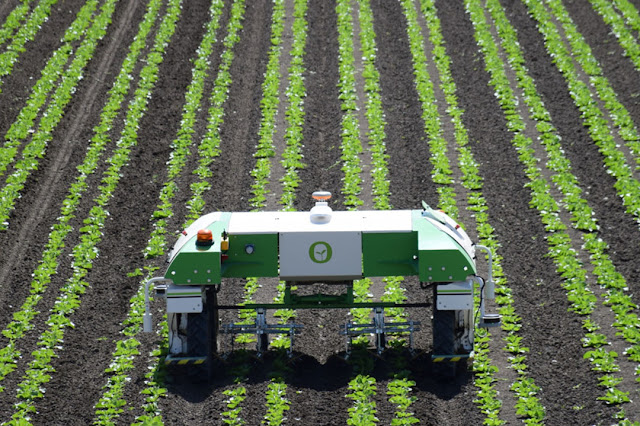The Impact and Future of Genetically Modified Crops
 |
| Genetically Modified Crops |
A genetically modified crop is one that has undergone genetic
engineering to change its DNA and is employed in agriculture (GM crop). Plant
genomes can be altered physically or by employing Agrobacterium to transfer
sequences found in T-DNA binary vectors. By introducing a specific DNA sequence
into their genome, plants can be genetically engineered to acquire novel or
unique characteristics. This may mean giving the plant resistance to disease or
changing the way it grows.
Genetically modified (GM) crops have become a pivotal innovation
in modern agriculture, offering solutions to some of the most significant
challenges in food production and environmental sustainability. These crops are
engineered using biotechnology to enhance desirable traits such as pest
resistance, herbicide tolerance, and improved nutritional content.
Understanding
Genetically Modified Crops
Genetically modified crops are plants whose DNA has been
altered using genetic engineering techniques. Unlike traditional breeding
methods, which involve crossing plants over several generations, Genetically
Modified Crops allows for the direct insertion or deletion of genes. This
precision enables scientists to create crops with enhanced characteristics,
such as resistance to pests, diseases, and environmental conditions, as well as
improved yield and nutritional content. Examples of GM crops include
herbicide-tolerant soybeans, insect-resistant corn, and vitamin A-enriched
rice.
Benefits of
Genetically Modified Crops
The introduction of genetically modified crops has brought
numerous benefits to agriculture and food production.
Increased
Crop Yields: One of the primary advantages of GM crops is their ability
to increase crop yields. By incorporating traits such as pest resistance and
herbicide tolerance, these crops can thrive in conditions that would otherwise
reduce productivity. This is particularly important in regions with high pest
pressure or limited arable land.
Pest and
Disease Resistance: GM crops can be engineered to produce their own pest
repellents or resist diseases, reducing the need for chemical pesticides. For
example, Bt corn is genetically modified to produce a toxin that targets
specific insect pests, significantly reducing crop losses and the environmental
impact of pesticide use.
Herbicide
Tolerance: Many GM crops are designed to tolerate specific herbicides,
allowing farmers to control weeds more effectively without damaging the crops.
This simplifies weed management, reduces competition for resources, and can
lead to higher yields.
Nutritional
Enhancement: Some genetically modified crops are developed to address
nutritional deficiencies in human diets. Golden Rice, for instance, is enriched
with beta-carotene, a precursor to vitamin A, and aims to combat vitamin A
deficiency, which is prevalent in many developing countries.
Environmental
Sustainability: By reducing the need for chemical inputs and enabling
more efficient use of resources, GM crops can contribute to more sustainable
agricultural practices. Drought-tolerant GM crops, for example, can thrive in
water-scarce environments, conserving valuable water resources.
Controversies
and Concerns
Despite the benefits, genetically modified crops have been
the subject of significant controversy and debate.
Safety
Concerns: Critics of GM crops often raise concerns about their safety
for human consumption and the potential for unintended health effects. However,
numerous studies and regulatory assessments have found that approved GM crops
are safe to eat.
Environmental
Impact: There are concerns about the potential environmental impact
of GM crops, such as the development of pest resistance, gene flow to wild
relatives, and effects on non-target species. These issues highlight the need
for careful management and monitoring.
Ethical and
Social Issues: Ethical concerns about genetically modified crops include
the control of food supply by a few large corporations and the potential loss
of biodiversity. There is also debate over the labeling of GM foods and the
right of consumers to make informed choices.
Key Players
in the Genetically Modified Crops Industry
The development and commercialization of genetically modified
crops are spearheaded by several key players. Leading companies include
Monsanto (now part of Bayer AG), Syngenta, DowDuPont (now Corteva Agriscience),
BASF, and Bayer CropScience. These corporations invest heavily in research and
development to innovate and bring new GM crops to market. Their extensive
product portfolios and global reach make them influential in shaping the future
of agriculture through biotechnology.
The Future
of Genetically Modified Crops
The future of genetically modified crops holds significant
promise for addressing global challenges in food security, environmental
sustainability, and nutrition.
Advanced
Biotechnologies: New technologies such as CRISPR gene editing offer even
greater precision and potential for crop improvement. These advancements could
lead to the development of crops with multiple beneficial traits, further
enhancing productivity and resilience.
Climate
Change Adaptation: As climate change continues to impact agriculture,
genetically modified crops that can withstand extreme weather conditions, such
as drought, heat, and flooding, will become increasingly important.
Global Food
Security: With the global population projected to reach nearly 10
billion by 2050, ensuring sufficient food production is crucial. GM crops can
play a vital role in meeting this demand by improving yields and reducing
losses due to pests and diseases.
Sustainable
Agriculture: The integration of GM crops into sustainable farming practices
can help reduce the environmental footprint of agriculture. This includes
minimizing the use of chemical inputs, conserving natural resources, and
promoting biodiversity.
Genetically modified crops represent a significant
advancement in agricultural science, offering solutions to some of the most
pressing challenges facing global food production and environmental
sustainability. While controversies and concerns remain, ongoing research,
regulatory oversight, and technological innovation will be key to realizing the
full potential of genetically modified crops in creating a more secure and
sustainable food system.
Get more insights on Genetically
Modified Crops
Get more related content on Genetically
Modified Crops



Comments
Post a Comment